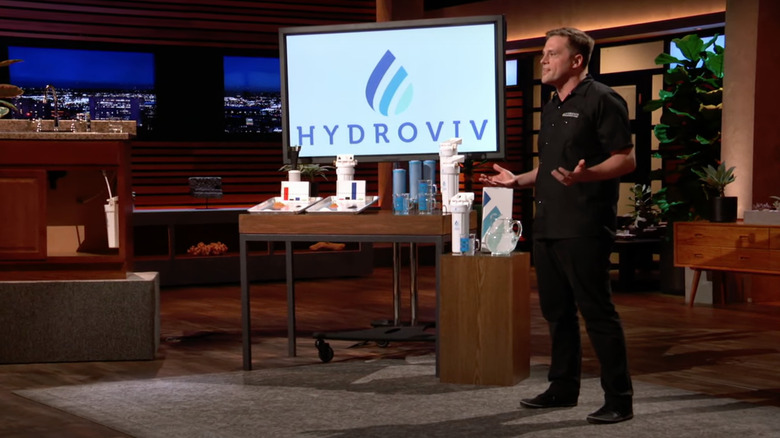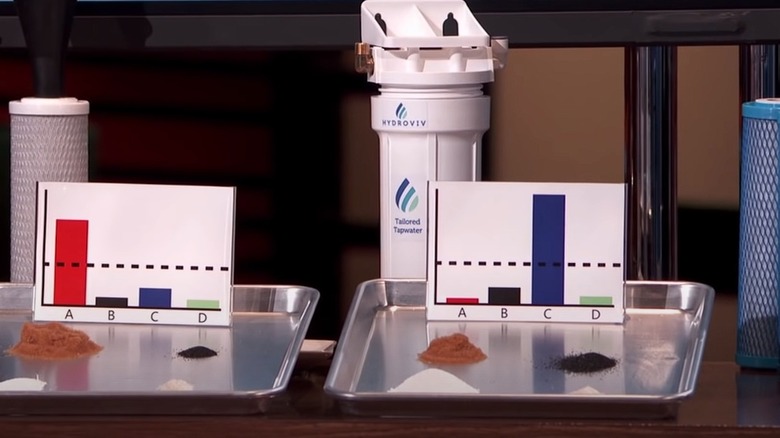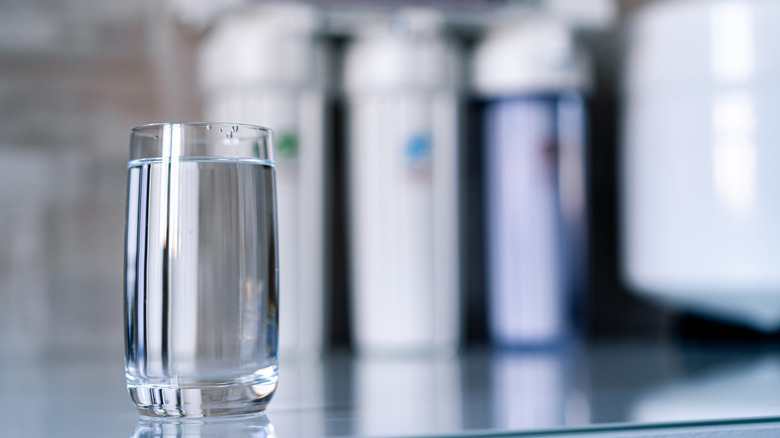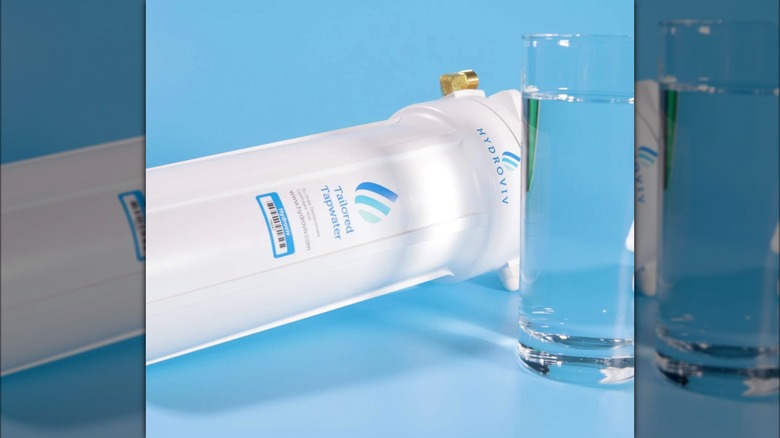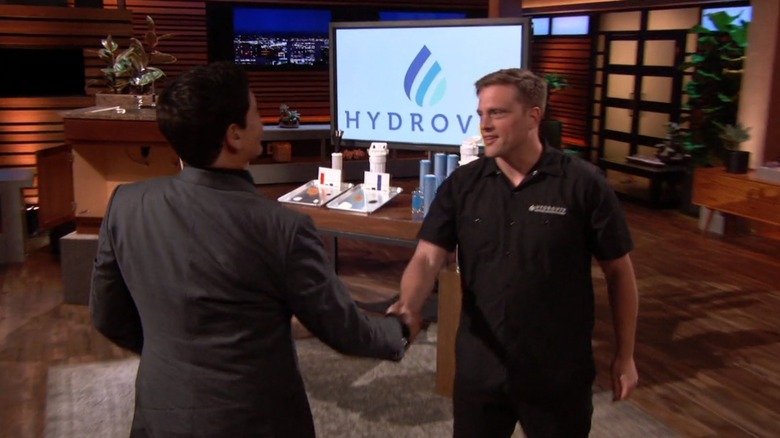Whatever Happened To Hydroviv Water Filters After Shark Tank Season 10?
In most environments, a person can only survive without water for about three days. In most situations, meeting this need isn't an issue — just head over to the faucet or grab a bottle of water to rehydrate. In locations where water quality is compromised, however, not having access to drinking water suddenly becomes an imminent threat. Most water filters are designed to handle water from the tap that's already reasonably clean, helping to filter out a few particles here and there that primarily impact taste. But places with significant issues, like deteriorating lead pipes, need a much more heavy-duty system. To help solve this issue, Eric Roy developed Hydroviv, a new kind of custom water filtration system. He began creating these filters to help with the Flint, Michigan water crisis but soon expanded to create products for less extreme cases.
Roy certainly came in with the science and experience to support his claims, but long-term business success requires much more than proof of a product's utility. During the pitch on ABC's "Shark Tank," it was clear that Hydroviv was founded with the best intentions, but whether or not the company could act on these ideas all depended on commercial sales.
Hydroviv Water Filters on Shark Tank
During his pitch on Season 10, Episode 19 of "Shark Tank," Eric Roy began with the fact that he has a Ph.D. in chemistry, seeking $400,000 in exchange for a 10% stake in his company — a significant ask that values Hydroviv at $4 million. He states that he aims to create customized water filtration systems that target issues in each city's unique water supply. With this approach, you end up with filters specific to your needs rather than something one-size-fits-all that only does a mediocre job across the board.
The stars of "Shark Tank" were interested in the idea but began questioning it as Roy revealed that the bulk of the $400,000 investment would go to advertising and marketing. All of the Sharks besides Mark Cuban dropped out for that reason, essentially stating that contributing the money would be too risky if he didn't already have that side of the business figured out. Cuban, however, offered a deal of $400,000 for 20% of the company, which Roy accepted after being criticized by the investors when he attempted to ask more questions.
Hydroviv after Shark Tank
Though Barbara Corcoran had some harsh words for Eric Roy after his "Shark Tank" pitch, it still looks like he secured the funding he needed after he left the show. When offering to invest, Mark Cuban stated that Roy needed to increase American awareness of possible contaminants in the water supply rather than simply pushing the product. Without that draw to Hydroviv's filters, there would be no reason to purchase them in the first place. After looking at Hydroviv's social media pages, it's clear that the brand listened to his advice.
The company's Instagram and Facebook pages are filled with infographics and statistics that specifically warn about the dangers of drinking water that contains microplastics, toxic substances, and heavy metals. These posts far dominate any actual advertising for its water filters, so it's evident that Hydroviv is still prioritizing education over direct sales numbers — precisely what Cuban recommended.
Is Hydroviv still in business?
Currently, it appears Hydroviv is still in business and doing well. Because the brand customizes filters based on the water supply in the customer's location, it's a bit limited on where it can sell products. Unless it listed hundreds of filters specific to each area on Amazon or through an in-person retailer, it'd have to abandon this model entirely. For this reason, it looks like Hydroviv only sells through its website.
Because the company also works with a subscribe-and-save model, they've likely been able to transition many of their one-time buyers into returning, loyal customers. This approach is even more helpful when you consider that the initial cost of the product is so high. A new system is $400, and replacement filters are $115 every six months, so Hydroviv likely isn't getting many customers that impulse buy and then decide not to follow up with their subscription.
What's next for Hydroviv
During Hydroviv's "Shark Tank" pitch, Eric Roy only spoke about the Undersink Water Filter system. However, the company now carries a shower filter and a refrigerator/ice maker filter to tackle multiple locations in the home. The under-sink water filter is still the most popular seller, but now, families living in areas with poor water have ways to tackle the issue across the board. Additionally, when buying multiple products, they offer bundles for a discount.
It's unclear if Hydroviv plans to release more of these filters for different applications across the home, but for now, it looks like the brand has the primary water sources covered. Until they decide to develop something new, Hydroviv appears to be more focused on spreading statistics, educating the public, and drawing in more customers that may not have been aware that their tap water isn't as clean as they previously assumed.
